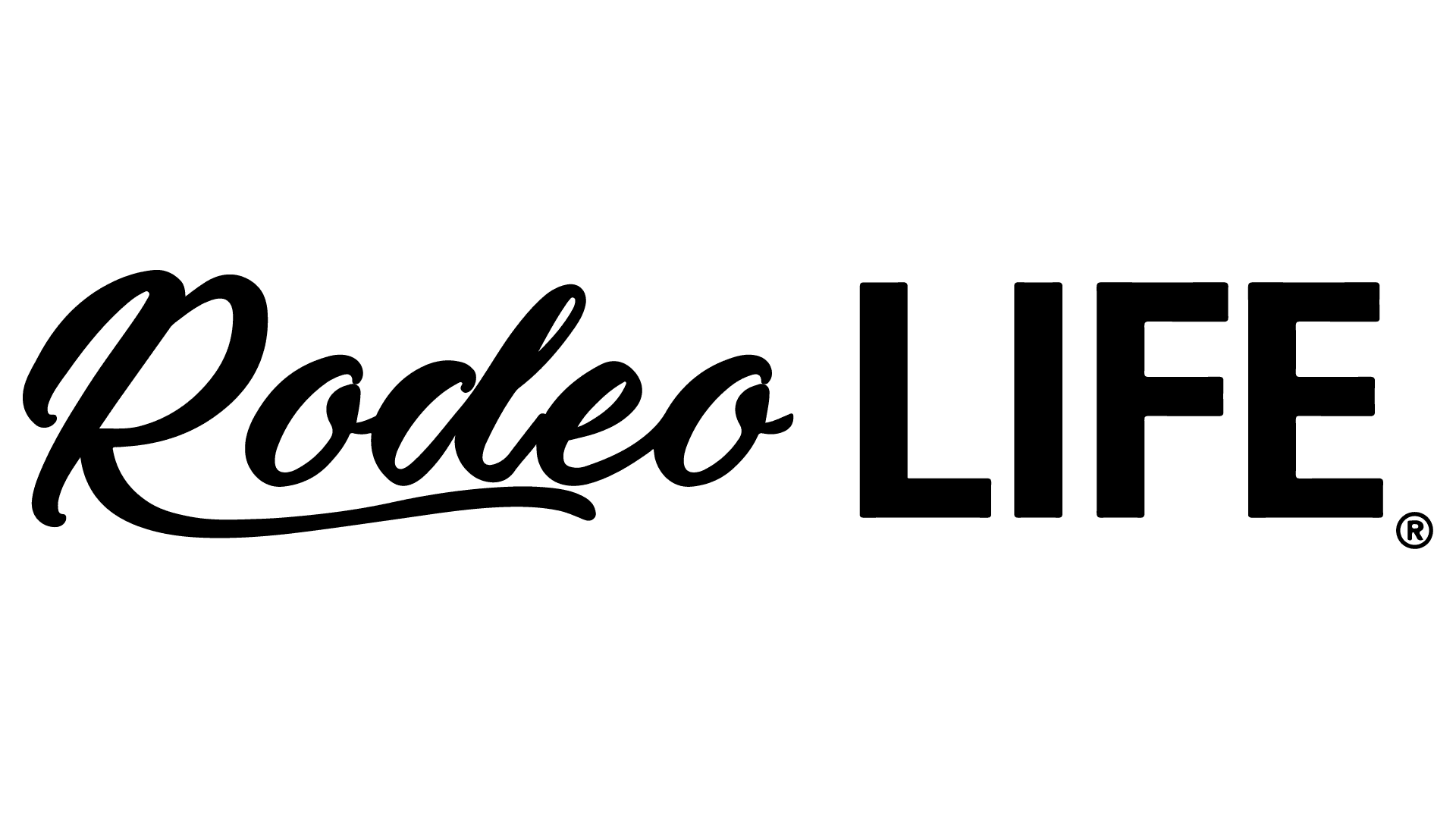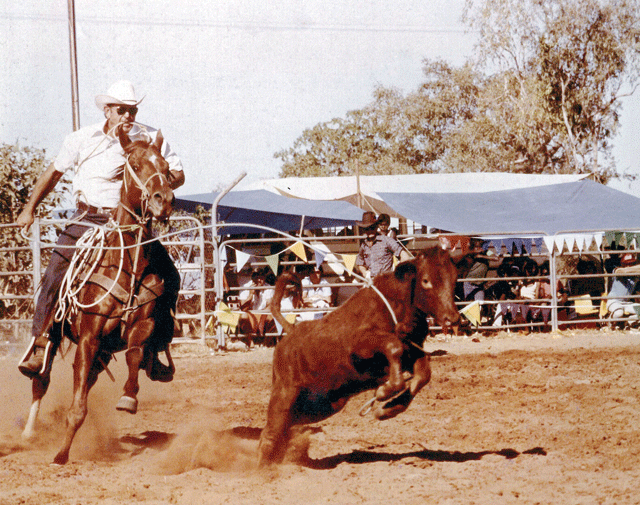Buddy Cockrell got to do a wide variety of things throughout his life. The Texas-born cowboy competed in high school and college rodeo, played college and professional football, owned ranches in Australia and Brazil and a gold mine in Costa Rica. He was born in 1934 and raised by his mother, Alice Gray Cockrell, and maternal grandparents, O.H. and May Etta Ingrum east of Pampa, Texas, on a farm and ranch.
His granddad started him cowboying and working when he was six years old, and Buddy learned to rope from Perry Franks, a hired hand on the OK Ranch where they lived, a well-known Texas roper and Turtles Cowboy Association member.
Buddy learned to steer wrestle in an unusual way. His uncle had horned purebred Hereford cows, and there was a cattle trail on the place, not far from the house. On horseback, Buddy would run a Hereford down the fence line, diving off his horse and onto the cow. He wasn’t usually able to throw the cow, but it gave him the chance to learn how to plant his feet, slide and get an arm hold. One day, one of the cows’ horns broke, and his granddad asked how it happened. Buddy never said a word, and no one found out. And when he began steer wrestling the real way, with a hazer, “he said he never knew how easy it was,” his wife Geneva said.
Each morning, he and his older brother Lee would milk before school, get on the bus and ride twelve miles. They attended a one room school till they got to junior high, where Buddy’s height and size gave him an advantage in sports. He was a natural athlete, lettering in the shot put, basketball, and football, and playing defensive end and offensive tackle in football.
In 1953, the year he graduated, he played on the Pampa High School basketball team, which was state champs. He was the regional heavy weight Golden Glove boxing winner and was chosen to be on the National High School All American Football team. He was also competing in rodeos by then, match roping other cowboys and winning. Buddy sharpened his roping and steer tripping skills by gathering and branding calves and doctoring for screw worms.
The summer after high school graduation, he competed in the Texas High School Finals Rodeo and won the boys’ all-around saddle by placing in the calf roping and winning the steer wrestling. He competed in pro rodeos that summer, winning some and losing some. “I won more than I lost, or I couldn’t have kept going,” he said. “Money was tight at home and I needed all I could bank for college.”
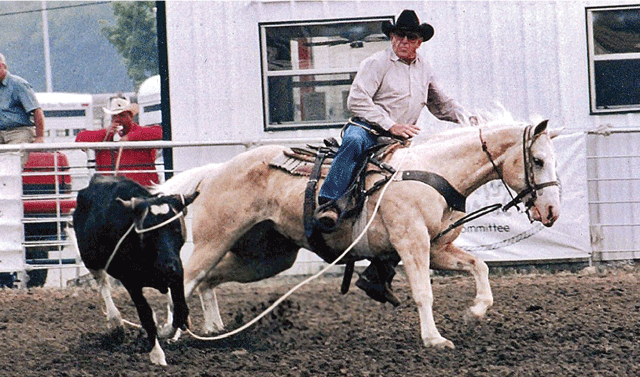
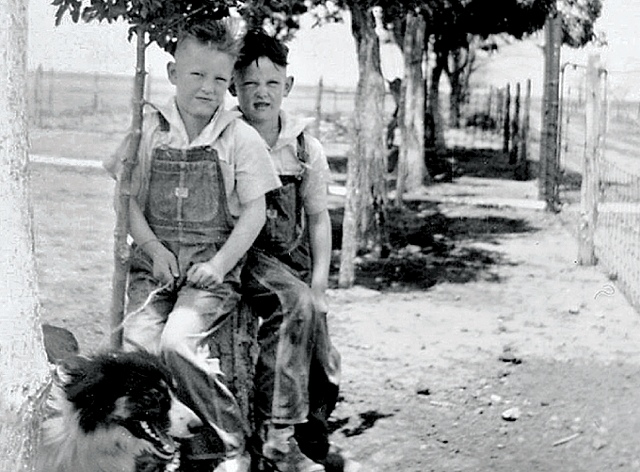
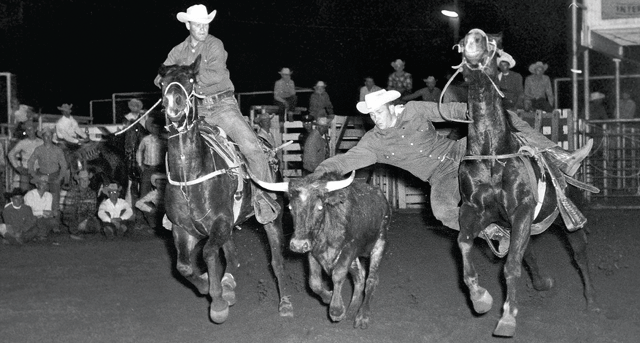
Buddy was in the field when Pop Ivy, one of the Oklahoma Sooner football coaches, visited. “I was out on the tractor plowing late one evening when a man stopped by. He had come to recruit me and offered me a scholarship,” Cockrell said. “It was better than driving a tractor, so I agreed.”
He played two years at Oklahoma University, under the tutelage of Bud Wilkerson and as part of the team’s 47 game winning streak. He didn’t rodeo, as Wilkerson didn’t want him to. Then Hardin Simmons University’s coach Sammy Baugh came calling. He offered Buddy a football and rodeo scholarship, so he transferred, doing both sports at Hardin Simmons and earning a business degree with a minor in economics. He competed once at the College National Finals Rodeo.
After college, Buddy headed back to Pampa to work on the family farm. But football wasn’t over for him. Pop Ivy had moved on to coach with the Saskatchewan Rough Riders, and he called Buddy, asking him to play for them. Buddy drove to Canada and signed a one year contract. When he got home, he found out he had been selected by the Cleveland Browns in the twenty-eighth round of the draft. But he stuck with his word and spent a year playing ball in Canada.
The next year, he went to Cleveland to play for the Browns. But during a scrimmage before the season started, he was blindsided by one of his own players, injuring his right knee. It required surgery, and Buddy never played for the Browns. He worked hard to rehabilitate the knee.
By this time, Sammy Baugh, his college coach, was coaching the New York Titans. He called Buddy and wanted him to come to New York. Buddy spent three years with the Titans (they became the Jets in 1962). The Denver Broncos asked him to play, but by then his knees were bad and he quit football.
Buddy returned home to rodeo and farm. He roped calves and steer wrestled, often traveling with his brother Lee, who was a calf roper. He competed close to home and added steer roping to his repertoire. His best season was in 1977, when he was the PRCA season champion steer roper. There were three years (1976-1978) when two champions were awarded in each event. World championships were determined by the highest amount of money won at the NSFR. Season champs were awarded based on total season earnings. Buddy earned $11,386 that year; Guy Allen, ninth during the regular season, won the world title with earnings of $2,585 from the NFSR.
He and his brother never drank; they had seen the effects of alcohol on their father. But that didn’t stop Buddy from having a good time. Good friend and fellow steer roper Howard Haythorn remembers that Lee and Buddy would get one room with one bed while rodeoing. Lee would take care of horses, eat a good solid meal and go to bed. Buddy would be gone all night, having a good time and coming in when Lee was getting up. “Lee would get more sleep but I had more fun,” Buddy laughed.
Wherever Buddy went, fun and good times followed. He wasn’t scared of anything. His wife Geneva relates a tale of when he, Larry Nolan, Tom Henry, and Tuffy Thompson were headed to a steer roping in Nebraska. Their pickup died and there was no way to start it. Buddy said, “If I can get that big horse out of the trailer, I promise you I can pull this pickup and you can jump it.” Nobody believed him, but Buddy hooked his horse to the pickup, got it to move, and the pickup started.
That same trip, the four of them were at their destination, where they ate supper and checked into a hotel. Two women in the bar decided to follow them to the hotel. Buddy and Tuffy were upstairs in their hotel room, with Larry and Tom on the first floor. All of a sudden, they heard a bang and glass flying. The women had accidentally driven their car into the wall, at Larry and Tom’s room. Buddy said, “what’s going on?” and Tom’s reply was, “girls, if we’d have known you were coming, we’d have opened the door for you.”
After his football career, Buddy had several businesses. In 1971, he built a 25,000 head cattle feed lot east of Pampa, selling it seventeen years later. He and two other men built a 10,000 head hog operation outside Lefors, Texas, selling their hogs to Jimmy Dean’s processing plant in Plainview, Texas.
In 1980, one of Buddy’s biggest adventures began. He flew to Australia to buy carrier airplanes. While he was there, he looked up an old rodeo friend, Carey Crutcher. Crutcher convinced him to buy a ranch (called a station in Australia) and Buddy was in the cattle business Down Under. The Blina Station was 640,000 acres with approximately 12,000 head of cattle. It was 100 miles from the closest town, Derby, and Buddy stayed six months of the year, while his son, Dan worked at the ranch year round.
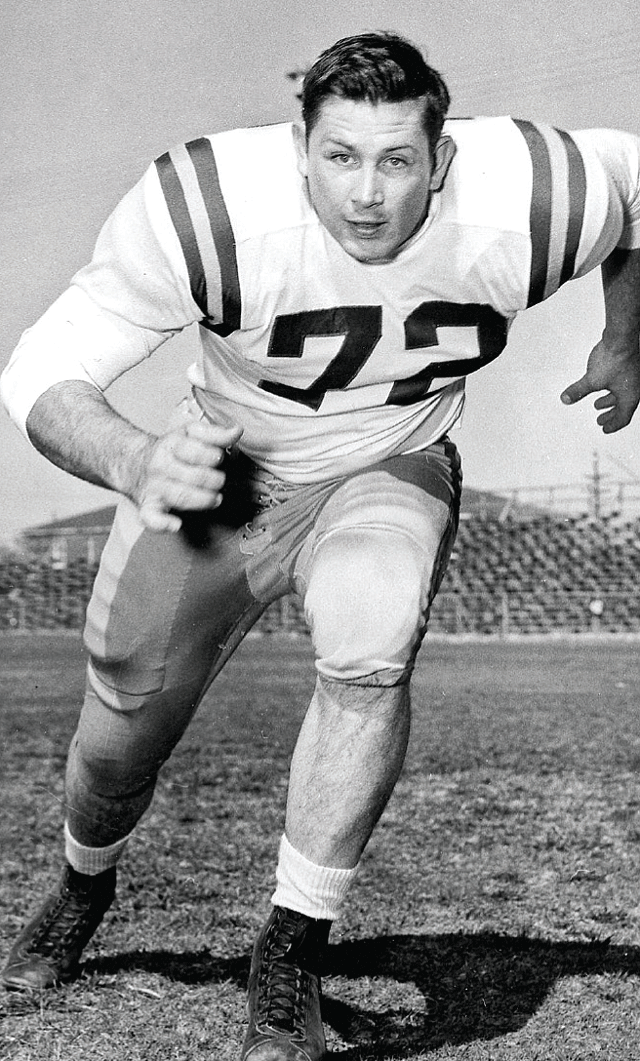
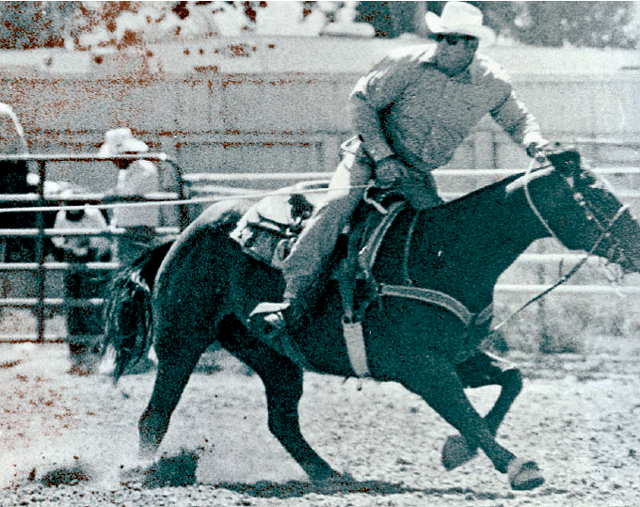
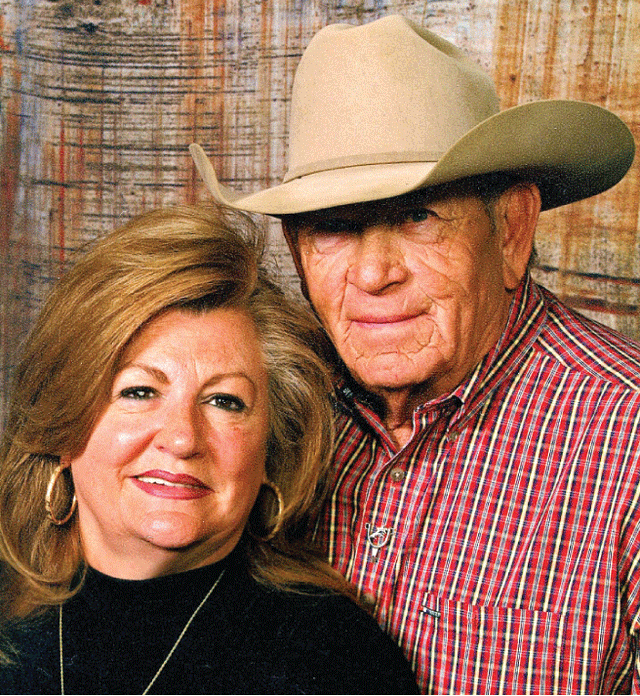
While he was in Australia, he attended and competed in rodeos, introducing team roping to the Australians, supplying timed event cattle for them, and winning an all-around saddle at his last rodeo in the country.
He loved working at the station. The cattle were wild, some of them never having seen humans, and they would catch the bulls by roping them, tying them to the massive trees in the outback, and winching the animal into trailers. Then they were hauled back and put with the herd in the corral. One of Buddy’s worst injuries came when roping a bull. The bulls had been mustered and hauled into the corral. When Buddy roped one, it took off over a feed trough, catching the rope around his leg and breaking it. The bone was sticking through the skin, when Dan, his son, put him in the back of the pickup and drove him to Derby. There, doctors wrapped it, readying it for a flight to Perth for surgery. Buddy insisted that it was wrapped too tightly, but the doctor didn’t listen. When he was in flight, he asked the attendant to loosen it, cutting off over half of it to relieve the pressure. “He’s had some wild wrecks,” his wife Geneva said.
Buddy’s business ventures didn’t end in Australia. He, along with partners, briefly owned a gold mine in Costa Rica and a ranch in Brazil.
He didn’t ever touch alcohol, but he loved his Coca-Cola. He kept a cooler of it in the back of his pickup, and often drank 42 oz. a day.
He was an excellent horseman, Howard said, and his daughter Amy was too. “She was a good hand.” He knew good horseflesh, his wife Geneva said. “He has a super, super eye for a good horse,” although he hasn’t ridden for three years.
Buddy and his first wife, Joyce Moyer, had three children: Mel, Dan and Amy. He met his second wife, Geneva, in 2000, and together they have five children, nine grandchildren and three great-grandchildren. Amy and her husband Kyle Best ranch near Douglas, Ariz. Dan and his wife Drucy ranch at Higgins, Texas, and Mel lives at Amarillo. Geneva has two sons: Ty and his wife Kimberly Harris and Krece Harris, all of Decatur, Texas.
At age 83, Buddy has Myasthenia gravis, a neuromuscular disease that weakens the skeletal muscles, causing difficulty in swallowing, walking and talking, and double vision. He got bucked off a horse three years ago, and since then, his health has declined.
But Buddy has always met life’s challenges with a smile, ready to tackle them. “He lives life to the fullest extent,” Geneva said. “He’s been very blessed, and he’s always thought he was bulletproof.” He doesn’t worry about things. “He’s led a very carefree life. I worry and get grayer and grayer, and he says, why worry about it? Things will work out if they’re supposed to.”
Howard Haythorn loves his old friend. “He’s a giant of a man, and not only in stature but in personality. He’s larger than life but he’s soft-spoken. He’s a lot of fun to be around.”
Buddy is a 2010 inductee into the Texas Panhandle Sports Hall of Fame and a 2014 Texas Cowboy Hall of Fame member.
He’s had a life that he would never have guessed, said his wife Geneva. “I don’t think he could have even dreamt up what would happen. He’s always been the kind, when he saw an opportunity that he was going to rise to the challenge.”
“I’ve been blessed,” Buddy said. Life “has been good to me.”
